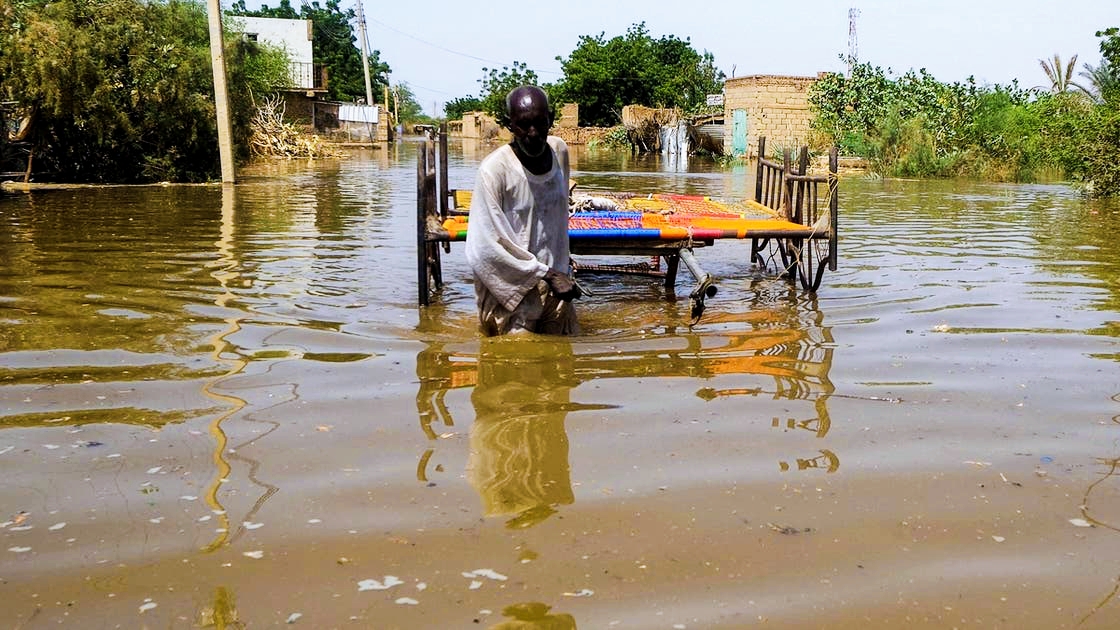The Sudanese Ministry of Irrigation issued an urgent warning yesterday, Friday, about the continued rise in the levels of the Nile River in the area extending from Khartoum to Kajbar, which is about 620 kilometers north of the capital.
The ministry urged all residents living along the banks of the Nile in this sector to take necessary measures to protect their lives and property.
The ministry clarified in its statement that the monitoring and measurement stations in Khartoum, and Shendi to the north, and Jebel Awliya south of Khartoum, on the White Nile, recorded a noticeable rise in flood levels, which also included the states of Khartoum, River Nile, and White Nile.
Sudan has witnessed widespread flooding over the past two days due to the rising levels of the Nile River and its main tributaries; the White Nile coming from Lake Victoria, and the Blue Nile coming from the Ethiopian plateau, noting a decrease in the level of the Blue Nile from the Rosaires area to the capital Khartoum.
These floods come amid escalating controversy over the impact of the Ethiopian Renaissance Dam on water levels, amid ongoing disputes between Sudan and Egypt on one side, and Ethiopia on the other, regarding the mechanism for filling and operating the dam that began construction in 2011.
Khartoum and Cairo insist on signing a binding legal tripartite agreement, while Ethiopia asserts that there is no need for an agreement and confirms its intention not to harm other countries, which has led to the freezing of negotiations for intermittent periods.
During the rainy season from June to October, Sudan experiences heavy rains that cause widespread annual flooding, with government statistics showing that about 24,992 families, equivalent to 125,056 people, have been affected since the beginning of the rainy season until September 25.
In this context, Egypt accused Ethiopia of acting in a "reckless and irresponsible" manner in managing the river's flood, considering that these actions have caused significant damage to Sudan and threaten the lands and lives of Egyptians, expressing concern about the exploitation of water for political purposes at the expense of regional security.
The Sudanese ministry emphasizes the importance of preparedness and vigilance, and calls on citizens along the Nile between Khartoum and Kajbar to adhere to the guidelines to protect their lives and property, amid expectations of further rising water levels in the coming period.

